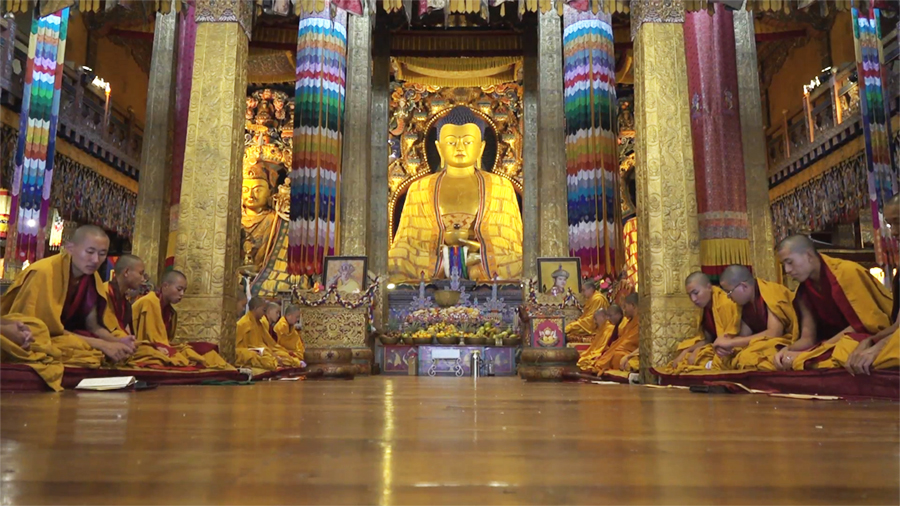
Unlike other Tshechus, the Punakha Tshechu has been unfolding in quiet reverence, with a few spectators. During the three-day Tshechu, the monks chant prayers in the Dzong without any mask dance or cultural programme. According to the Central Monastic Body, although some residents of Punakha come to offer prayers, not many are aware of the sacred event. The Tshechu ended recently.
The annual Punakha Tshechu was held inside the Kuenrey of Punakha Dzong. Machhen Zimpon and Tse Zim of Zhung Dratshang presided over the ceremony.
According to Machhen Zimpon, one of the reasons why this Tshechu is not known to many is due to the lack of mask dances and other entertainment programmes.
Machhen Zimpon Namgay Wangchuk said the Tshechu was instituted by Zhabdrung Ngawang Namgyal in 17th Century to pay homage and commemorate the auspicious day of Guru Rinpoche.
“This Tshechu is different from other Tshechus because we administer Wang of Zhabdrung Daag-Nangma. I did not see comprehensive Wang being administered in other Tshechus. Moreover, we display sacred relics to public.”
After the end of three-day Tshechu, several sacred relics are displayed to the public. Zhung Dratshang also administer Tshe-Wang of Zhabdrung Daag-Nang-Ma.
Tandin Dorji, a resident of Guma Gewog said “People are not aware about the three-day Tshechu of Punakha. People are just coming here after knowing that there is a ‘Wang’ today. So, people are not aware of the Punakha Tshechu.”
Pema, a resident of Shenga-Bjemi Gewog said “People of other districts do not know about the Punakha Tshechu. Only people who have contact with us know this event.”
“I did not know about this Tshechu until now. From next year, I will try to come to attend this Tshechu regularly. Even I will try to inform others about this three-day sacred Tshechu and display of sacred relics in Punakha Dzong,” said Nala from Bajo town.
This three-day Tshechu is being performed annually in the eight month of Bhutanese calendar.
Punakha also has another regular Tshechu instituted in 2005. It is usually held in spring where mask dances and cultural programmes are performed following the Punakha Dromchoe.
Changa Dorji, Punakha
Edited by Tshering Zam






